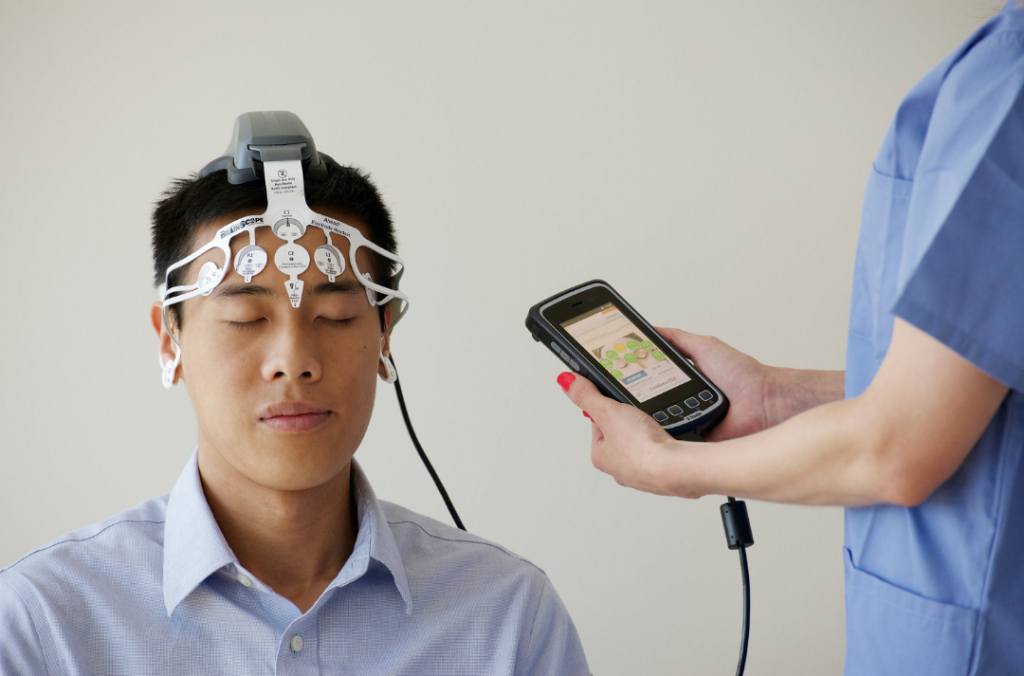Since the discovery of musical instruments 40,000 years ago, we mortal humans have been captivated by sound. How can a few notes change an ordinary moment in time into an experience that can even feel otherworldly? The truth is, music is more than just a few notes on a page, it is the careful stitch and weave of several components that come together simultaneously to create a beautiful masterpiece. No matter the style of music you listen to, music has the power to transcend borders, languages, age – music is its own language and all those that listen are fluent. Music has the power to make us feel, even without words and that, in my humble opinion, is pure magic. But what is the psychology of music and how is it impacting our mental health?
‘Your Brain on Music’
The human brain is made up of three key sections including the cerebrum, cerebellum, and brain stem. These three sections can be sub-divided into twelve separate areas. These are the frontal lobe, temporal lobe, Borca’s area, Wernicke’s area, occipital lobe, cerebellum, nucleus accumbens, amygdala, hippocampus, hypothalamus, corpus callosum and putamen. That is a lot of parts, right? Did you know that when we listen to music, each section of the brain is activated and responds differently? Neither did I until I researched it – truly mind-boggling stuff!
Each section of the brain has a different response when processing the music we listen to. Some examples include:
- The Frontal Lobe – Listening to music enhances its function of thinking and decision making.
- Broca’s Area – Music can aid us to communicate better as this enables us to speak.
- Wernicke’s Area – Enables us to analyse music as this controls how we understand written and spoken language.
- Nucleus Accumbens – This section of the brain seeks pleasure and reward and releases dopamine. It can perceive music as addictive as it increases the amount of dopamine released.
You can explore all of the brains responses to music here: Music and the Brain: What Happens When You’re Listening to Music

In general, music has many benefits associate with it including changing the ability to perceive time, reduce seizures, improve communication, boost the immune system, help repair brain damage, and trigger memories. In fact, whilst writing this, I was listening to ‘Song on Fire’ by Nickelback and it reminded me of listening to this song on full blast in my friend’s car as we drove to college a few years ago! It is not a particularly significant memory, but because I was listening to it then, as I listened to it now, I was reminded of that time – mind boggling once more!
“We are writing you a new prescription: music”
It seems ridiculous, right? A prescription for ‘music’ – surely that’s not going to make us feel better! What if I told you, it could? Now I am not trying to imply that putting on your favourite tunes is going to fix a broken leg, but music does have many ‘medicinal’ possibilities.
Music for Pain Management –
Music therapy is a form of conditioning now that can be used to treat a variety of issues as mentioned above. In the medical world, music is becoming more prevalent as a treatment for pain – this can be both physical and mental pain. This is possible due to our body’s natural rhythm to produce sound and movement – each person’s rhythm is different and connects to our brainwaves or electrical activity of the brain that follows said rhythm. When listening to a piece of music with a tempo that is similar to our natural tempo, we are more drawn to it and pulled away or distracted from brain activity associated with pain.
Putting this into practice in the medical world, personalised music therapy may now be used as treatment for pain management post operatively, in rehabilitation etc. This would see personalised playlists that match a patient’s natural rhythm or tempo. This could also see devices that can monitor the natural rhythm in real time and adjust the ‘medicine’ accordingly to cater for fluctuating levels of pain.
Daniel Levitin has two books on the topic if you want to know more: Music as Medicine and This is Your Brain on Music.
Music for Mental Health –
The benefits of music on our mental health come in abundance. Whether this be from lowering stress levels, enabling us to feel, learn more about ourselves, act as an instant mood booster – music is there to help. When we are stressed, our autonomic nervous system is affected. This is a function of the body that controls things like our heart rate and blood pressure – both naturally elevate when we are stressed. By listening to music that is not related to the stressful situation, it can have a calming effect that in turn lowers our heart rate and blood pressure, lessening the physical and emotional symptoms of stress. Non-lyrical music has also been connected with the ability to help us understand what we are feeling and why as we can transfer what we are feeling into a piece of music that is arguably open to interpretation.
Music is something that we can all relate to, even those hard of hearing are able to connect with music through vibration. It is its own language, and we are all fluent we just need to find what we truly connect with. Need some inspiration? Check out the Student Green Office playlist over on our Instagram: @cccusustainability
What is your favourite song and why? Let us know in the comments!
Thanks for reading, Maddie 😊
By Madeline Polston, SGO Projects Officer
 Sustainability
Sustainability Bethany Climpson
Bethany Climpson 908
908


